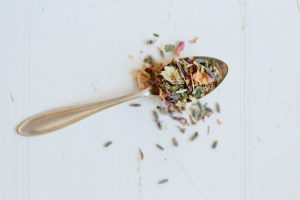The Naturopathic Co.

You're using an outdated browser. Please upgrade your browser to improve your experience.
If you wake up most days tired, struggle to get through the day, battle a mid-afternoon slump, and then start the whole experience all over again the next day then it’s time to make some change. Typically, we find that patients continue living the same dysfunction day in and out, until finally the pain of staying the same becomes overwhelming and they can’t continue. The reality is, that some small adjustments can create some sustainable improvements when it comes to fatigue.
As mothers, we expect so much from our body. This is precisely why it’s so important to give back. Not just in the form of self-care, but in nutritionals. We must provide the support needed for our body to maintain balance. In addition to this, the sheer unrelenting workload of motherhood often wreaks havoc on our system, altering hormonal balance and increasing the likelihood of adrenal fatigue or recurrence of chronic conditions.
When we are stretched for time, we often overlook nutritious food options, and find ourselves reaching for that extra cup of coffee. But here we will take a look at some other supportive strategies for fending off fatigue.
Sleep should be considered the highest importance in rebalancing any health condition. Keep a consistent sleep schedule by going to bed at the same time each night, and make sure it is early (before 10.30pm or earlier).
We are not advocating anything radical here. The simple truth is, many women eat a lot of carbs when feeling tired and worn out. We reach for the bread, the pasta, the chips, the biscuits. It’s the easy energy option. Adequate protein is imperative for a few reasons. Lack of protein creates a viscous cycle of unstable blood sugar and increases feelings of fatigue. Protein is also crucial in facilitating a healthy immune response as it forms components of the immune system. Stick to wholefoods, complex carbohydrates such as brown rice, sweet potatoes, oats, legumes. Increase intake of fish, nuts, avocados, and chia seeds to stabilize blood sugar and provide anti-inflammatory relief. Ensure to consume proteins in small quantities, preferably cooked so as to not place further strain on the digestive system.
Foods such as cold-water fish, nuts (walnuts, almonds), seeds (flax), olive oil (unheated) are encouraged as EPA’s (eicosapentaenoic acids) have been shown to have a beneficial effect on fatigue.
Eat a full range of colored fruit and vegetables. 2 cups daily should be the minimum in order for your body to receive the full array of nutrients required to regulate mood, modulate hormones, boost immunity, maintain mitochondrial health, and fight free radicals. A good way to do this daily is by incorporating easily digested and absorbed smoothies and vegetable juices.
This is another very easy adjustment that provides real outcomes for boosting energy. If you are dehydrated you will feel fatigued, and many of us are. Our body is made from such a high percentage of water that the slightest decrease in intake will have a significant effect on metabolism and electrolyte balance. Women should be aiming to drink 30mL per kilo each day. Extra water should be consumed if you are drinking coffee and also if exercising.
Caffeine found in chocolate, energy drinks, coffee, and tea should be excluded or minimized. Caffeine and alcohol have been associated with worsening of symptoms, depletion of vital nutrients, and further weakening of the immune system and adrenals in fatigued patients.
Sugar is an immune depressant and induces a rebound effect for fatigue symptoms once consumed. Artificial sugars should be avoided and natural sugars should both be minimized.
Depending on the cause of your fatigue, your naturopath may incorporate some herbs as part of your treatment prescription for fatigue. Herbs such as Eleutherococcus senticosus, Glycyrrhiza glabra, Rehmannia glutinosa, Withania somnifera, and Rhodiola rosea have proven effective in restoring energy levels associated with periods of fatigue. It is important to seek professional advice for herbal medicines to ensure the correct herbal prescription for your condition, and many herbal medicines can interact with pharmaceuticals and cause unwanted side effects.
If fatigue is significant, disabling, and prolonged (lasting for 1-6 months) then other causes of fatigue should be ruled out through functional testing, such as infection, hormonal imbalance, immune dysfunction, neurochemical dysfunction, food and environmental intolerances, as well as Chronic Fatigue Syndrome. Book a time with us to discuss your symptoms.
Functional lab testing and investigations
Full infective history including recovery, frequency, duration
Immune function (including lymphatic function and eliminatory processes)
Emotional and psychological history
Stress (environmental, nutritional, social, emotional)
Toxin exposure (mould, chemicals, household toxins)
Digestive function
Dietary intake (including cravings, alcohol intake, stimulants)
Sleep assessment
Childhood and adulthood health
Family and genetics
Yvette is a qualified Melbourne-based Naturopath and Nutritionist, MINDD Practitioner, member of the Naturopaths and Herbalists Association of Australia, and Complementary Medicine Association. Yvette specialises in the treatment of conditions commonly affecting women and children, with a key interest in children’s digestive and neurological conditions, as well as women’s hormonal concerns, digestive issues, fatigue, anxiety, and skin concerns. Yvette consults in South Yarra, Melbourne, as well as Australia-wide via skype/zoom/phone.
Comments are closed.